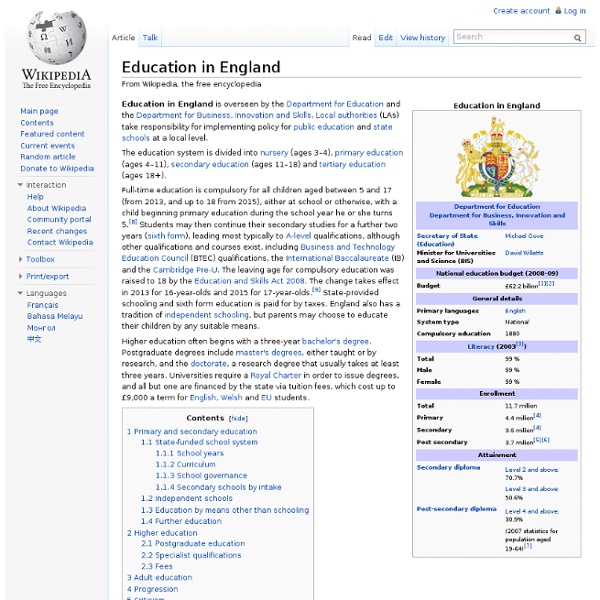Britain’s School System Explained
The following is a guest post by Liz Jarvis from Living with Kids . I don’t envy anyone having to navigate the British school system. It’s an absolute minefield. Right from the start you’re plagued with that awful suspicion that if you make One False Move you’ll be messing up your child’s future. It’s fiercely competitive, and in some cases takes skill, cunning, joining a church and even moving house to get your child into a Good School. It’s the endless topic of conversation at school gates and dinner parties across the UK. Here’s (roughly) how it shapes up – please note that this isn’t exhaustive by any means, the British school system is incredibly complicated: Primary schools: The State (FREE) primaries usually go from ages 5 to 11. Prep schools/private primaries: You have to pay fees – sometimes exorbitant – to send your child to these schools, which tend to be smaller than the state primaries. Secondary schools: (This is where the competition gets really fierce.) Grammar schools:
The UK Education System explained | Bridgwater College
FarmLink at Bridgwater College’s Rodway Farm To bring the classroom to the countryside and the countryside to the classroom. Future Farming Group The Future Farming Group works together on a number of joint initiatives for the benefit of the agricultural sector across the South West. Traineeships at Bridgwater College Traineeships is a new programme for young people who want to work, but who need extra help to gain an apprenticeship or job. Access to Higher Education Courses Access to HE courses are a fast-track route to gain a place at a university or college to study a higher education course. Residential School: English plus Golf Bridgwater College and Lee Westwood Golf School are offering a residential school for individuals to learn English and enhance their Golf skills. 24+ Advanced Learning Loans The Government is introducing Advanced Learning Loans for anyone aged 24+ starting a course at level 3 and above. Bridgwater College's University Partners Higher Education Explained
Academy (English school)
Academies are self-governing and most are constituted as registered charities or operated by other educational charities, and may receive additional support from personal or corporate sponsors, either financially or in kind. They must meet the same National Curriculum core subject requirements as other state schools and are subject to inspection by Ofsted. The Labour Government under Tony Blair established academies in 2000. The chief architect of the policy was Andrew Adonis (now Lord Adonis, formerly Secretary of State at the Department for Transport) in his capacity as education advisor to the Prime Minister in the late 1990s.[2] The introduction of academy schools was opposed, notably by teachers' trade unions and some high-profile members within the Labour Party, such as former party leader Lord Kinnock.[3][4] There are no academies in Wales, as education policy there is devolved to the Welsh Assembly. I am more authentically Andrew Adonis than Andrew Adonis is
Cathedral school
The cathedral school of Trondheim, founded in 1152, is the oldest school in Norway. Today, the Katedralskole serves as secondary school. Cathedral schools began in the Early Middle Ages as centers of advanced education, some of them ultimately evolving into medieval universities. Throughout the Middle Ages and beyond, they were complemented by the monastic schools. Some of these early cathedral schools, and more recent foundations, continued into modern times. Early schools[edit] In the later Roman Empire, as Roman municipal education declined, bishops began to establish schools associated with their cathedrals to provide the church with an educated clergy. During and after the mission of St Augustine to the Southern British, Cathedral schools were established as the new dioceses were themselves created (Canterbury 597, Rochester 604, York 627 for example). Characteristics and development[edit] Cathedral schools were mostly oriented around the academic welfare of the nobility's children.
Independent school
An independent school is a school that is independent in its finances and governance; it is not dependent upon national or local government for financing its operations, nor reliant on taxpayer contributions, and is instead funded by a combination of tuition charges, donations, and in some cases the investment yield of an endowment. It is governed by a board of directors that is elected by an independent means and a system of governance that ensures its independent operation. It may receive government funds. However, its board must be independent. The terms independent school and private school are often synonymous in popular usage outside the United Kingdom. Australia[edit] In Australia, independent or private schools are the fastest growing education sector, and over 85% of them have a religious or church affiliation. Canada[edit] Independent schools in British Columbia are partially financed by municipal governments by Statutory and Permissive tax exemptions. United Kingdom[edit]



